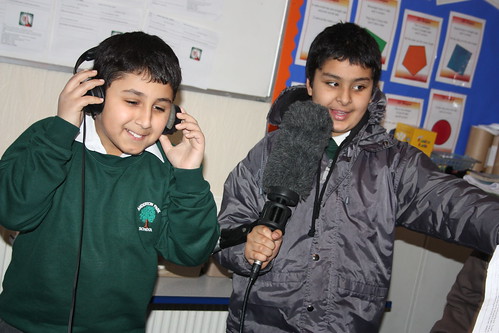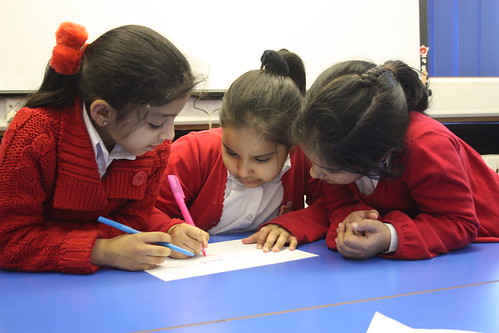So many times when I interview people I hear ‘I’m not sure if this is of any interest but….’. A lot of people, it seems, undervalue their contributions, or take for granted how important their experiences are for other people. These tend to be the most interesting interviews. They also mainly tend to be women.
Just as well then, that local historians Nikki Thorpe, Nicola Gauld and Sian Roberts created ‘Women’s History Birmingham‘ to promote and raise awareness of women’s history in Birmingham, and in particular women’s contributions to shaping the social, cultural and political landscape of Birmingham. Subjects covered include the Women’s Liberation movement, policing, mental health, Fascist Spain, perceptions of single mothers, reproductive health, prostitution, sit-ins, and DIY culture to name just a handful of themes we’ve touched on!
The HLF funded project was inspired by a small pamphlet, ‘Birmingham Women: Past and Present‘, produced by Professor Catherine Hall for the Feminist Review journal in the early 1980s. The pamphlet was the basis of a sponsored walk to raise funds for the journal, and featured information about key points of interest along the walk pertinent to prominent women in the city’s history.
Over three decades later, this work is now being developed further through collecting testimonies of women who lived and worked in Birmingham during the 1970s and 1980s. These recorded memories are being added to online maps, to encourage people to undertake their own history walks. You can view the maps, discover a whole host of stories, design your own heritage walk and contribute information by viewing the map on the Women’s History Birmingham website. The edited films are also available to view over on my Vimeo page.
I have facilitated workshops at Perry Beeches II and Waverley School focused on teaching pupils key film making skills and oral history interview techniques, before giving pupils free rein to interview women for the project. I have been completely taken aback by the maturity that pupils have shown for interviewees, and as a result, the honesty and frankness of those being interviewed. The films, which I have been editing together, create an important archive, filling a huge gap in our understanding of how the ideas, actions and attitudes of women in the past shape the world around us today.

However, perhaps the greatest legacy of this project is in the changing attitudes of the young people involved in the project. This quote from a pupils at Perry Beeches II perhaps sums up the impact best.
Thank you for sharing your stories and for making us aware and maybe helping us to see what we can do in the future.
For interviewees too, it has been a valued opportunity to reflect on their journeys and what sharing their experiences can mean to others. Jasmine was very generous in sharing her memories:
The youngsters were keen to listen to my journey, through my life in education and work especially my work with children experiencing mental health problems. Their curiosity and questioning gave me the opportunity to reflect on my own life achievements, as a black women working in the health service.
The interview left me reflecting on my own life experiences and how important it is to share stories with the younger generation about some of my conflicts and challenges.
It left me hoping that the conversations with us may give them a model of overcoming some of their own challenges that they may come across in their female lives.
A few weeks ago we shared the project at the Women’s History Network Annual Conference and it was clear that there is a real appetite and enthusiasm for the project to develop further. We will be developing ideas in the near future, but do get in touch with your thoughts and ideas if this has got you interested!











 I have rich pickings here. Workshops where we delved into the archive to discover magazines produced by invalided soldiers, photos of injured servicemen following facial reconstructive surgery, lectures on the sheer scale of organisation required to ensure wounded soldiers were treated, genealogy workshops on tracing WW1 casualties, interviews with Korean war veterans, an interview with a serving Military Surgeon, explorations of Highbury Hall with a group of school pupils… it’s fair to say that we have been busy.
I have rich pickings here. Workshops where we delved into the archive to discover magazines produced by invalided soldiers, photos of injured servicemen following facial reconstructive surgery, lectures on the sheer scale of organisation required to ensure wounded soldiers were treated, genealogy workshops on tracing WW1 casualties, interviews with Korean war veterans, an interview with a serving Military Surgeon, explorations of Highbury Hall with a group of school pupils… it’s fair to say that we have been busy. My main involvement in the project has been working with pupils at Swanshurst School to teach them how to conduct Oral History interviews so that they are able to do their own interviews. Alongside former History Teacher, Doug Smith, and members of the People’s Heritage Co-operative, we ran a series of workshops to prepare the girls for interviewing war veterans during the school’s ‘Veterans Day’ event.
My main involvement in the project has been working with pupils at Swanshurst School to teach them how to conduct Oral History interviews so that they are able to do their own interviews. Alongside former History Teacher, Doug Smith, and members of the People’s Heritage Co-operative, we ran a series of workshops to prepare the girls for interviewing war veterans during the school’s ‘Veterans Day’ event. t was particularly striking was how much the pupils took away from the experience. Here are a few comments from pupils themselves:
t was particularly striking was how much the pupils took away from the experience. Here are a few comments from pupils themselves: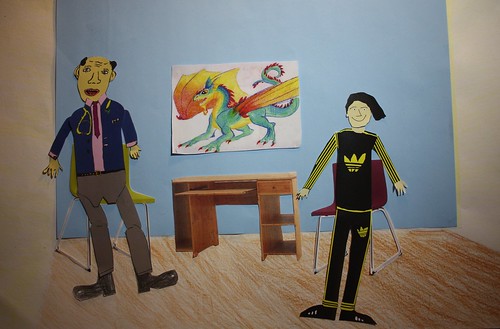 The young people are given annual check ups by a specialist team of nurses, and they also have the opportunity to discuss health issues with a specialist paediatrician. This means that their physical and mental health can be monitored and managed, and support can be offered where needed. Files are kept in one place and the young person will usually see the same person each year.
The young people are given annual check ups by a specialist team of nurses, and they also have the opportunity to discuss health issues with a specialist paediatrician. This means that their physical and mental health can be monitored and managed, and support can be offered where needed. Files are kept in one place and the young person will usually see the same person each year.

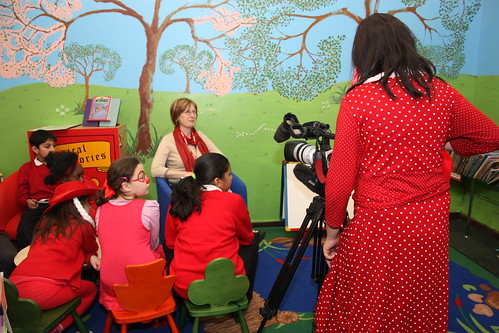
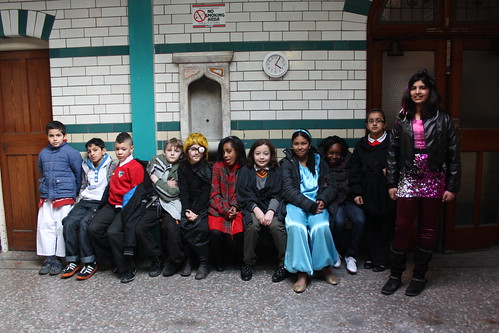 Pupils have really loved the tours and have asked some really great (and challenging!) questions about the building and how it was built and is maintained. On several occasions I’ve seen pupils dashing up to parents and teachers to tell them all about the things that they’ve learnt. Apologies if you’re one of those people who has been bombarded with trivia! However, we know that young people are exactly the kind of ambassadors we need to ensure future generations enjoy the building.
Pupils have really loved the tours and have asked some really great (and challenging!) questions about the building and how it was built and is maintained. On several occasions I’ve seen pupils dashing up to parents and teachers to tell them all about the things that they’ve learnt. Apologies if you’re one of those people who has been bombarded with trivia! However, we know that young people are exactly the kind of ambassadors we need to ensure future generations enjoy the building.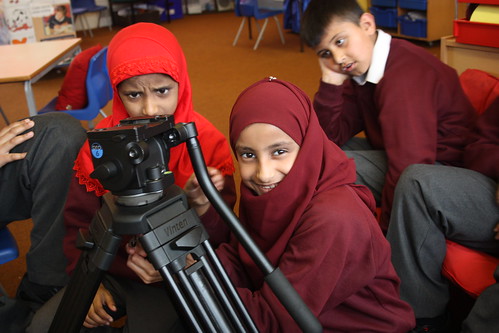 All of the children have picked up on the film-making really quickly. We’ve had some real giggles mucking around with the microphones and playing around in front of the camera! We soon managed to form film crews with a Director, Sound Recordist, Camera Operator and Interviewer. Many of our interviewees have commented on the professionalism of the group.
All of the children have picked up on the film-making really quickly. We’ve had some real giggles mucking around with the microphones and playing around in front of the camera! We soon managed to form film crews with a Director, Sound Recordist, Camera Operator and Interviewer. Many of our interviewees have commented on the professionalism of the group.